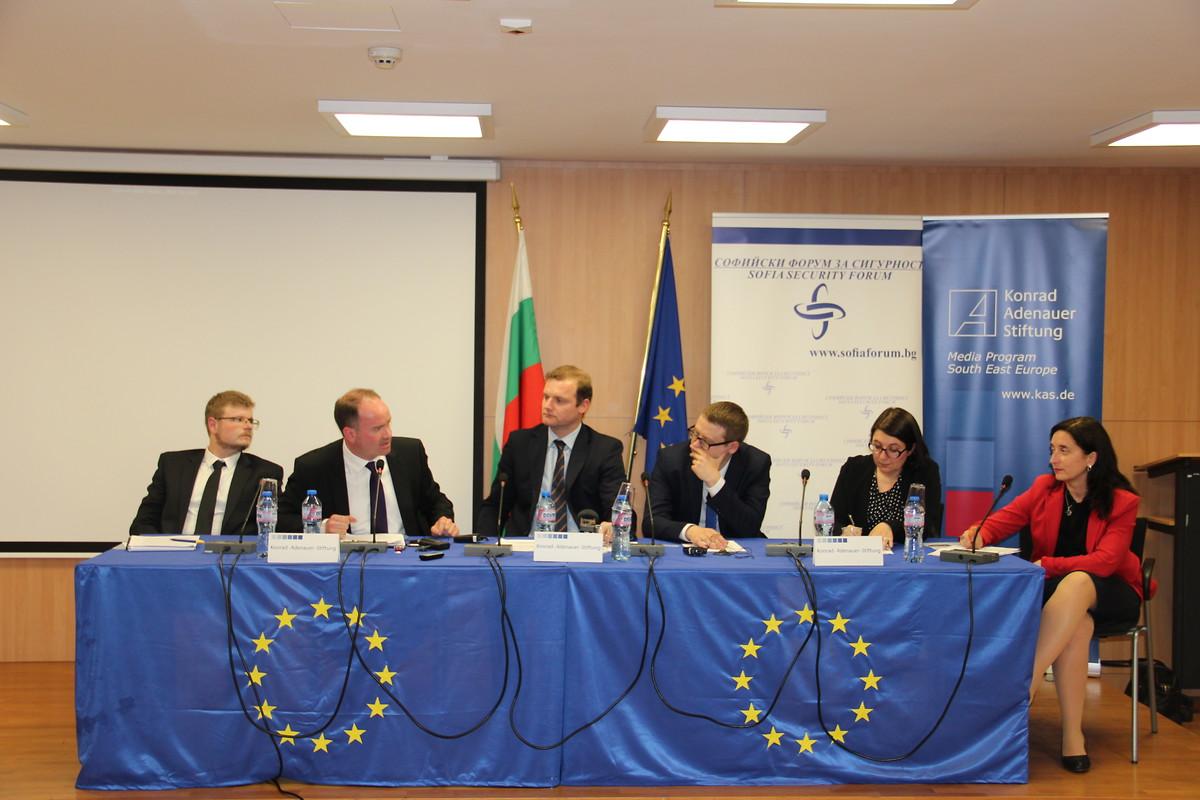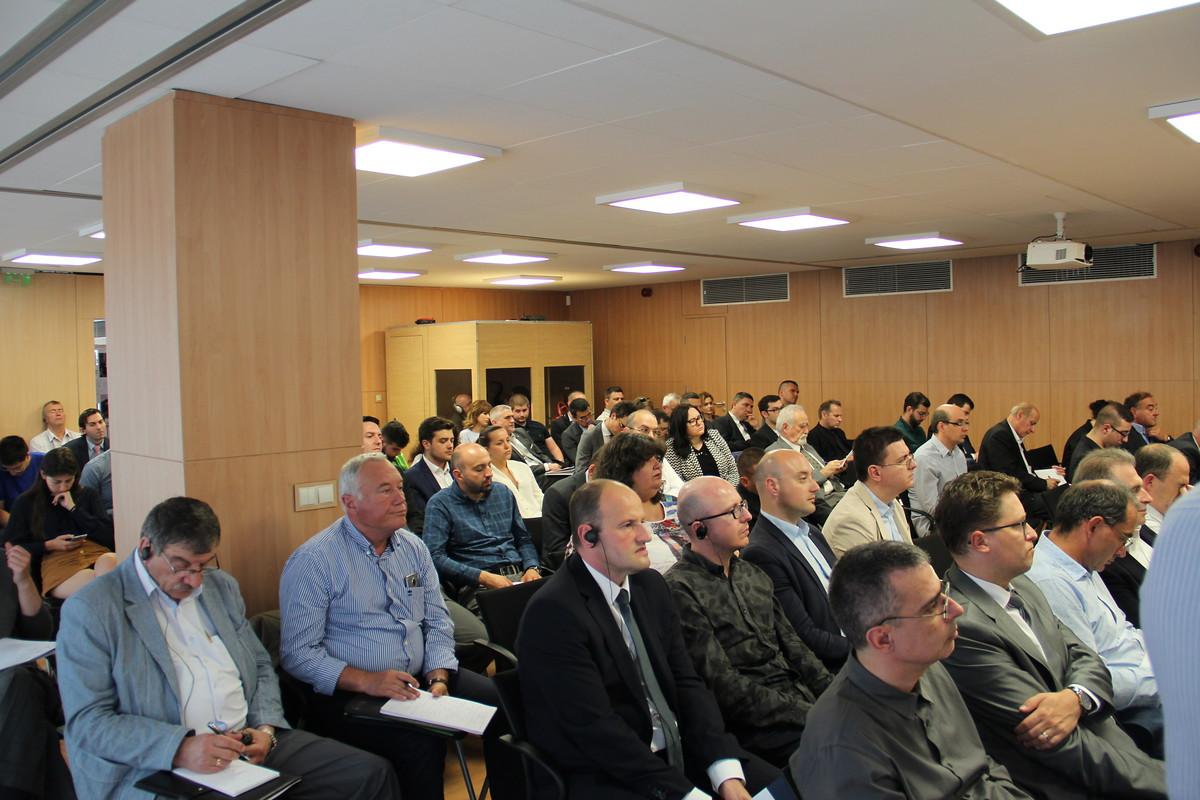Event reports
Many European countries experience the negative impact of disinformation campaigns and hybrid warfare on their societies and governments. Security experts, journalists, diplomats, political advisers and scientists gathered together to analyse the nature of new hybrid wars and disinformation and to discuss different countermeasures. The event was organised by the KAS Media Program South East Europe and Sofia Security Forum together with the British Embassy in Sofia and the Center for National Security and Defence Research. It took place on 22nd May 2018 in Sofia.
The conference with the title "Hybrid warfare and disinformation – the new (old) threats to Europe" was opened by Yordan Bozhilov, President of the Sofia Security Forum. "The internet made our lives easier, but we became also more vulnerable to disinformation and cyberattacks," said Mila Serafimova, also co-host of the event from the Sofia Security Forum and moderator of the discussion.
During her presentation Irina Nedeva, Chairperson of the Association of the European Journalists in Bulgaria, noted that the Fake News phenomenon became bigger than cyberwarfare. Fake news was affecting political decisions. We have seen that elections have been influenced by social media. "Counter-propaganda is not the solution. It would create another cold war," said Nedeva.
Not enough investments in cybersecurity
Hans-Wilhelm Dünn, President of the German Cybersecurity Council, told the audience that only 10 percent of companies invest in cybersecurity, lacking budget, staff and education in this field. Furthermore, he said that international cooperation and regulation were necessary. "Heads of governments need to talk to each other and need a common approach," added Dünn.
"The new dimension about the threats of hybrid warfare and disinformation is the speed. We need to build resilience against disinformation," said Henry Collis, Deputy Director for Security and Defence Projects in the British Prime Minister's Office and Cabinet Office Communications Team. He pointed out that it is not effective to rebut every single case of false information. The effects of disinformation should be addressed by communicating a counter brand. According to Collis to overcome the vulnerability, governments need to reframe the debate by appointing the tactics and to equip people by improving the media environment and working together with social media companies.
Hybrid warfare is an effective and dangerous tool
Mykola Bielieskov, Deputy Director of the Institute of World Policy, gave examples on how the hybrid war is affecting Ukraine. "Hybrid warfare is a tool that is more effective than open combat," explained Bielieskov. Moreover, he warned that the EU and NATO are not the second front and danger of hybrid warfare is imminent. Governments can not only be reactive, they need to build resilience.
Martin Sokolov, Researcher at Center for National Security and Defence Research of the Bulgarian Academy of Sciences, explained that hybrid warfare is nothing new and outlined the developments of this phenomenon. Sokolov pointed out: "In order to become more resilient and to become less vulnerable against these threats, our societies need to become more democratic."
All speakers showed different perspectives to the topic, but concluded that countries need to invest more in education of people and work better together, in order to stand against disinformation and hybrid attacks.





